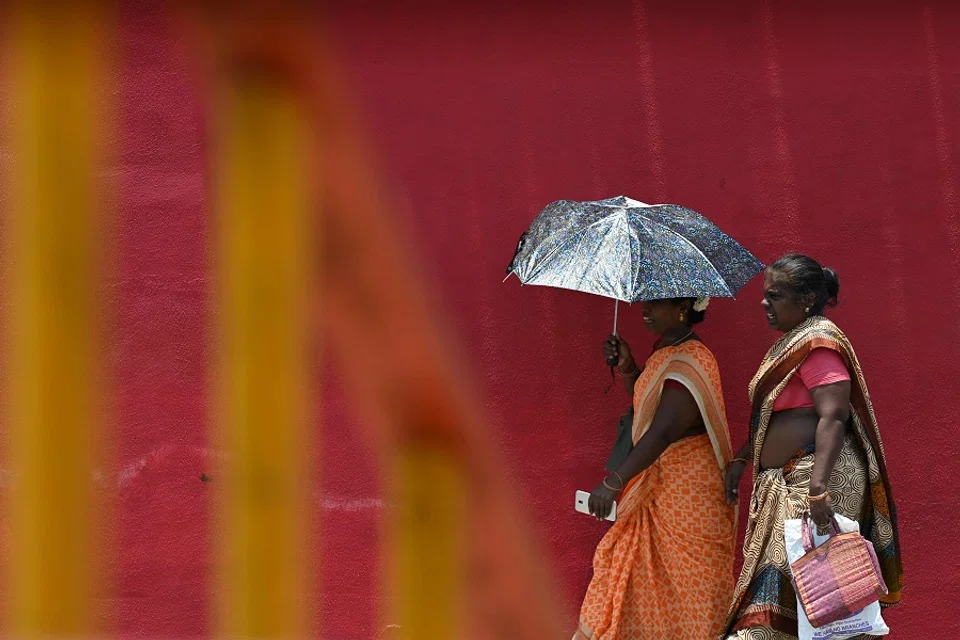Expanding the BRICS: New challenges for the embattled world order
Voices discussing the expansion of the BRICS are getting louder, leading up to the meeting of BRICS foreign ministers to be held this week in Cape Town. While China sees possible expansion of the BRICS as a useful development in growing its influence, other members of BRICS like India may view it with mixed feelings. ISAS academic Amitendu Palit explains.

The proposal to expand BRICS - a grouping of five of the world's largest emerging market developing economies - Brazil, Russia, India, China and South Africa - has come at a complex point in time. With foreign ministers of the five countries scheduled to meet in Cape Town, South Africa, on 1-2 June 2023 for deciding the modalities of the expansion, an enlargement of the BRICS will introduce a new dynamic in a fast-changing global landscape and rapidly evolving global order.
The current global order is facing one of its most serious threats of fragmentation since the end of the Cold War. The rivalry between the global major powers, the US and China, has expanded to impact all aspects of their bilateral relationship. The rivalry has also led to several other nations making strategic choices between the two countries. The imperative to choose has increased following the Russian aggression in Ukraine.
Russia's estrangement with the West, and consequent deepening of ties with China, has further destabilised the global order. With the Ukraine conflict dragging on, the prospect of the world getting reorganised into distinct blocs, in line with the friction caused by the US-China rivalry and the conflict, is imminent. The expansion of the BRICS needs to be looked at in the context of these fragilities.
BRICS: from economics to greater geopolitics?
As a grouping, BRICS has refrained from committing to geopolitical posturing. Its primary focus has been on shaping a global financial distribution system that gives more weight to the requirements of emerging markets. The biggest initiative of the BRICS, till now, has been the New Development Bank (NDB). Established in 2015 with an authorised capital of US$100 billion, NDB - headquartered in Shanghai - has focused on funding infrastructure and sustainable development projects in the BRICS and other emerging market developing economies.
... the BRICS - for China - is an appropriate forum for deepening economic and financial links with the world's most prominent emerging markets.

The current membership of the NDB provides some clues about the nature of an expanded BRICS. The five BRICS countries are the founding members of the NDB. Subsequently, the NDB has included Bangladesh, United Arab Emirates (UAE) and Egypt as members, with Uruguay expected to be admitted soon. With these countries already members of the NDB, some of them should expectedly be part of an expanded BRICS. They would be in addition to a number of other interested countries, such as Algeria, Indonesia, Saudi Arabia, Iran and so on.
An asset for China
The plan to expand BRICS was proposed by China during its chairmanship of the BRICS last year. As the largest economy of the BRICS, and the second largest economy in the world, the BRICS - for China - is an appropriate forum for deepening economic and financial links with the world's most prominent emerging markets. This is especially important for China at a point in time when the US is working with its allies to re-shore several industrial supply chains out of the mainland.
Comprehensive standard-setting frameworks, such as the Indo-Pacific Economic Framework for Prosperity (IPEF), are working on enhancing the resilience of supply chains, particularly in critical sectors. Led by the US, and including members of the Quad (US, Japan, Australia and India), the IPEF is seen by many as an initiative aiming to counterbalance the Chinese economic influence in the strategic Indo-Pacific region.

In light of geo-strategic developments like the IPEF and US controls on exports to mainland China, sketchy progress on the Belt and Road Initiative (BRI), and the economic and political setbacks inflicted by Covid-19, BRICS assumes considerable significance for China. The importance of the BRCS is further enhanced by the current proximity between China and Russia following the imposition of economic sanctions by the West on Russia.
For it [India], the biggest concern is an expansion of the BRICS club with greater Chinese allies.
Mixed signals for India
For India, another founding member of the BRICS, the proposed expansion conveys mixed signals. India's relations with China have been stormy. For it, the biggest concern is an expansion of the BRICS club with greater Chinese allies. Such an eventuality will complicate India's prospects in the group. Though India's relations with Russia are currently strong with robust economic ties, whether Russia will act as a 'balancer' in this regard is difficult to predict.
On the other hand, a larger BRICS also comprises significant opportunities for India. Over the last few years, India's political and economic relations have strengthened with several of the prospective members of BRICS. These include the UAE, Saudi Arabia, and Indonesia.
During its ongoing G20 presidency, India has emphasised and voiced the concerns of the "global south". It has extended special invitations to Bangladesh, Egypt and Nigeria to attend the G20 process under its leadership. The strategic goodwill obtained from these stronger relations and outreaches would be further enhanced if India facilitates some of their entries into BRICS. Along with political benefits, there are considerable economic opportunities that can be materialised for India from greater trade and financial engagement with new members in the BRICS.
India's preference would be to support the inclusion of those members that are largely "unaligned" between the US and China.

The challenge for India, though, will be to navigate deftly between competing conditions of working with country blocs led by the US, like the IPEF, along with one likely to be 'dominated' by China, like the BRICS.
China's economic heft in the BRICS is undisputed. It will not require much effort by China to assume functional leadership of an active and bigger BRICS given its economic clout. This is a factor likely to influence the outlook towards admitting new members.
India's preference would be to support the inclusion of those members that are largely "unaligned" between the US and China. But such a condition cannot be embedded in physical decision criteria for choosing new members, such as economic size, growth rate, and infrastructure capacities, which are likely to be employed for deciding new entrants.
An expanded BRICS might further complicate an already complex global order. It will also mean more challenges for India and several other large emerging market middle powers of the world struggling to balance damaging outcomes of major power rivalry and escalating military conflicts.
Related: Can the BRICS reinvent itself? | India's choice: Pro-US, pro-China or stay autonomous? | [State of our world] The world will be very different from the one we're used to | Slowly but surely: China partnering Brazil to weaken US dollar hegemony? | India's G20 presidency: Can China and India cooperate to create an 'Asian moment'?





![[Photos] Fact versus fiction: The portrayal of WWII anti-Japanese martyrs in Taiwan](https://cassette.sphdigital.com.sg/image/thinkchina/3494f8bd481870f7c65b881fd21a3fd733f573f23232376e39c532a2c7593cbc)